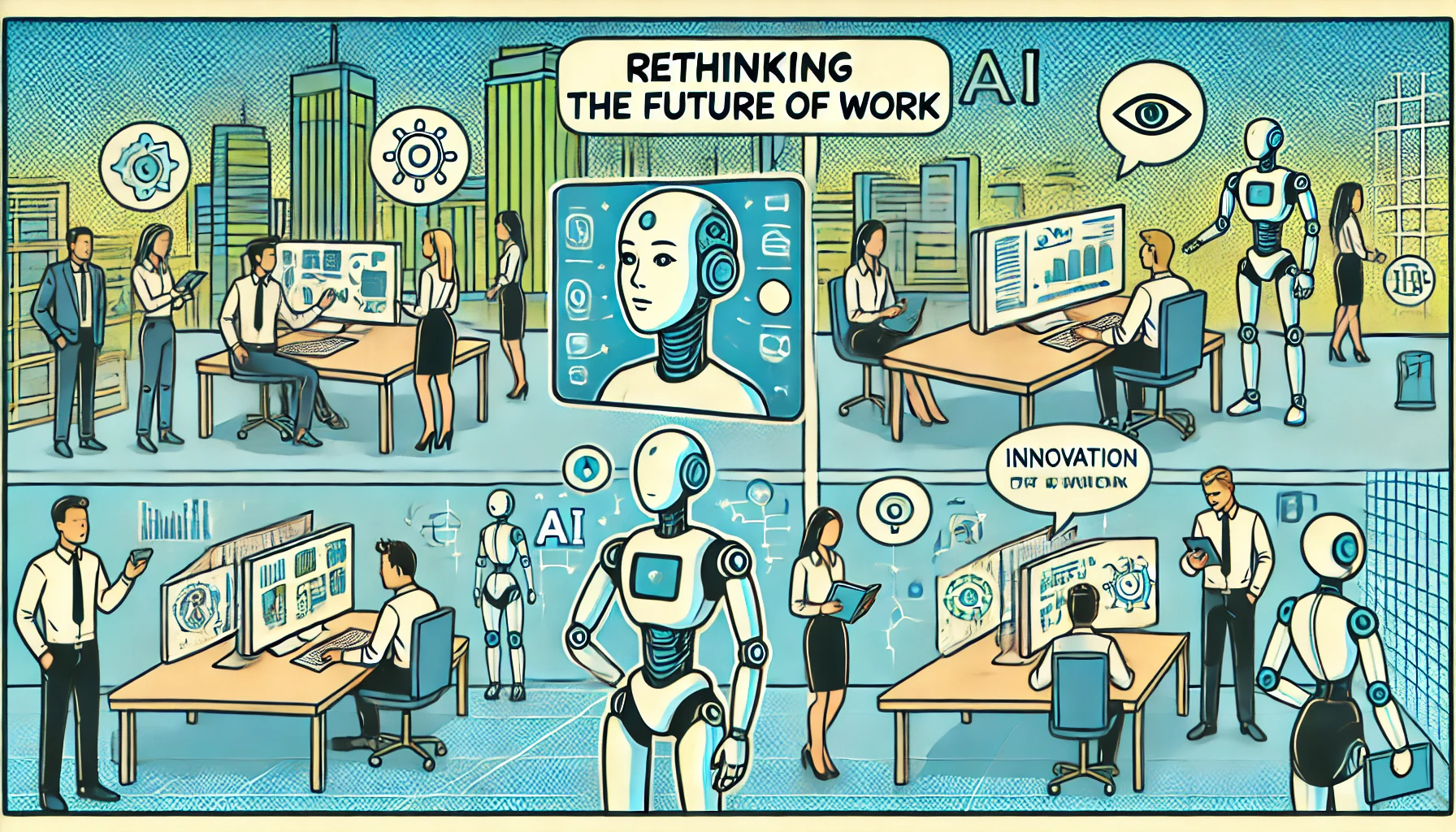In the rapidly evolving business landscape, organizations need a flexible, adaptable, and efficient approach to project management. Unlocking the Full Potential of Agile Practices is an intensive 5-day course that empowers professionals with the knowledge, skills, and techniques necessary to successfully implement agile practices in their projects.
This comprehensive course stands out by offering a focused learning experience that covers the most important aspects of agile methodologies. The curriculum is designed to provide a balanced mix of theoretical concepts and practical applications, ensuring that participants gain a solid understanding of agile practices and their real-life implementation.
Throughout the 5-day course, participants will explore a variety of agile methodologies, such as Scrum, Kanban, Extreme Programming (XP), and Lean Software Development. This diverse approach ensures that attendees acquire a broad understanding of the agile landscape, enabling them to select and implement the most suitable methodology for their specific project needs.
Unlocking the Full Potential of Agile Practices also addresses the human element of project management. The course delves into topics such as team building, coaching, mentoring, conflict resolution, and decision-making, equipping participants with the essential leadership skills required to guide high-performing agile teams.
The course format includes a combination of interactive lectures, group discussions, case studies, and hands-on exercises, providing ample opportunities for participants to practice and refine their skills. Attendees will not only learn about agile principles and techniques but also how to apply them effectively in real-world projects.
In conclusion, Unlocking the Full Potential of Agile Practices is an essential 5-day course for professionals seeking to master the art of agile project management. With its focused curriculum, practical approach, and emphasis on both technical and leadership skills, this course is the ideal choice for professionals looking to transform their projects for success using agile practices.
• Project Managers and Team Leads: Professionals responsible for managing projects and leading teams can greatly benefit from understanding and implementing agile practices, as it will enable them to optimize their project planning, execution, and delivery.
• Product Owners and Business Analysts: These individuals will gain valuable insights into agile requirements gathering, prioritization, and planning, which can improve product development and ensure alignment with business objectives.
• Software Developers and Testers: Agile practices promote collaboration, iterative development, and continuous improvement. Developers and testers can enhance their technical skills and adopt practices that result in higher-quality deliverables and faster time to market.
• Scrum Masters and Agile Coaches: Professionals already familiar with agile methodologies can deepen their understanding and refine their coaching and facilitation skills, helping their teams achieve higher performance and efficiency.
• IT Managers and Directors: Decision-makers in technology organizations can benefit from understanding agile methodologies, enabling them to support and promote agile transformation within their departments and across the organization.
• Change Managers and Process Improvement Specialists: Those responsible for driving organizational change and process improvements can leverage the learnings from this course to support and guide their organizations through agile transformation.
• Professionals seeking Agile Certification: The course content is designed to cover essential aspects of agile methodologies, making it an excellent preparation resource for professionals pursuing Agile Certified Practitioner (ACP) certification or similar credentials.
Overall, Unlocking the Full Potential of Agile Practices is a valuable learning opportunity for anyone involved in project management, software development, or organizational change who is looking to improve their skills, enhance project outcomes, and contribute to the success of their organization.
- Understand the fundamental principles, values, and concepts underlying agile methodologies and their advantages over traditional project management approaches
- Identify and choose the most suitable agile methodology for their projects, based on their specific needs and organizational context
- Apply agile techniques and best practices for project initiation, requirements gathering, prioritization, planning, and execution, ensuring effective project management and delivery
- Create and manage key agile artifacts, such as product backlogs, user stories, and release plans, to support project decision-making and progress tracking
- Lead and collaborate effectively within cross-functional agile teams, fostering a culture of continuous improvement and high performance
- Develop strong leadership skills, including coaching, mentoring, conflict resolution, and decision-making, essential for guiding agile teams and driving project success
- Manage stakeholder engagement and expectations throughout the project lifecycle, using effective communication strategies and techniques
- Ensure delivery of value and quality in agile projects, through the application of agile testing strategies, continuous integration, and the definition of "Done."
- Leverage learnings from this course to support organizational change and agile transformation initiatives, driving efficiency and innovation within their organization
- Prepare for Agile Certified Practitioner (ACP) certification or similar credentials, demonstrating their competence and commitment to agile project management best practices






- Agile principles and values
- Agile vs. traditional project management
- Benefits and challenges of adopting agile
- Roles and responsibilities in agile teams
- Agile artifacts and tools
- Agile project management frameworks
- Assessing organizational readiness for agile
- Agile transformation strategy
- Implementing an agile culture
- Scrum
- Kanban
- Extreme Programming (XP)
- Lean Software Development
- Feature-Driven Development (FDD)
- Agile project charter
- User stories and epics
- Product backlog creation and refinement
- Estimation techniques
- Release planning
- Agile metrics and forecasting
- Iteration planning
- Task boards and burndown charts
- Monitoring progress and adapting plans
- Building high-performing agile teams
- Coaching and mentoring
- Conflict resolution and decision-making
- Identifying and prioritizing stakeholders
- Effective communication strategies
- Managing stakeholder expectations
- Definition of Done (DoD)
- Continuous integration and delivery
- Agile testing strategies
- Retrospectives and process improvement












Training can take place in 4 formats:
- Self-paced
- Blended learning
- Instructor-led online (webinar)
- Instructor-led offline (classroom)
Description of training formats:
- Self-paced learning or e-Learning means you can learn in your own time and control the amount of material to consume. There is no need to complete the assignments and take the courses at the same time as other learners.
- Blended learning or "hybrid learning" means you can combine Self-paced learning or e-Learning with traditional instructor-led classroom or webinar activities. This approach requires physical presence of both teacher and student in physical or virtual (webinars) classrooms or workshops. Webinar is a seminar or presentation that takes place on the internet, allowing participants in different locations to see and hear the presenter, ask questions, and sometimes answer polls.
- Instructor-led training, or ILT, means that the learning can be delivered in a lecture or classroom format, as an interactive workshop, as a demonstration under the supervision and control of qualified trainer or instructor with the opportunity for learners to practice, or even virtually, using video-conferencing tools.
When forming groups of students, special attention is paid to important criteria - the same level of knowledge and interests among all students of the course, in order to maintain stable group dynamics during training.
Group dynamics is the development of a group in time, which is caused by the interaction of participants with each other and external influence on the group. In other words, these are the stages that the training group goes through in the process of communicating with the coach and among themselves.
The optimal group size for different types of training:
- Self-paced / E-learning: 1
- Instructor-led off-line (classroom): 6 – 12
- Instructor-led on-line (webinar): 6 – 12
- Blended learning: 6 – 12
- Workshop: 6 – 12
- On-the-job: 2 – 4
- Simulator: 1 – 2
Feedback in the form of assessments and recommendations is given to students during the course of training with the participation of an instructor and is saved in the course card and student profile.
In order to control the quality of the services provided, students can evaluate the quality and training programme. Forms of assessment of the quality of training differ for courses with the participation of an instructor and those that are held in a self-paced format.
For courses with an instructor, start and end dates are indicated. At the same time, it is important to pay attention to the deadlines for passing tests, exams and practical tasks. If the specified deadlines are missed, the student may not be allowed to complete the entire course programme.
A personal account is a space for storing your training preferences, test and exam results, grades on completed training, as well as your individual plan for professional and personal development.
Users of the personal account have access to articles and blogs in specialized areas, as well as the ability to rate the completed training and leave comments under the articles and blogs of our instructors and technical authors
Registered users of a personal account can have various roles, including the role of a student, instructor or content developer. However, for all roles, except for the student role, you will need to go through an additional verification procedure to confirm your qualifications.
Based on the results of training, students are issued a certificate of training. All training certificates fall into three main categories:
- Certificate of Attendance - students who successfully completed the course but did not pass the tests and exams can apply for a certificate of attendance.
- Certificate of Completion - students who have successfully completed a course could apply for a Certificate of Completion, this type of certificate is often required for compliance training.
- Verified Certificate - it is a verified certificate that is issued when students have passed exams under the supervision of a dedicated proctor.
You can always download a copy of your training certificate in PDF format in your personal account.
You will still have access to the course after completing it, provided that your account is active and not compromised and Tecedu is still licensed for the course. So if you want to review specific content in the course after completing it, or do it all over again, you can easily do so. In rare cases, instructors may remove their courses from the Tecedu marketplace, or we may need to remove a course from the platform for legal reasons.
During the training, you may encounter various forms of testing and knowledge testing. The most common assessment methods are:
- preliminary (base-line assessment) - to determine the current level of knowledge and adapt the personal curriculum
- intermediate - to check the progress of learning
- final - to complete training and final assessment of knowledge and skills, can be in the form of a project, testing or practical exam
Travel to the place of full-time training is not included in the cost of training. Accommodation during full-time studies can be included in the full board tuition fees.
While Tecedu is not an accredited institution, we offer skills-based courses taught by real experts in their field, and every approved, paid course features a certificate of completion or attendance to document your accomplishment.
You can preview samples of the training materials and review key information about the course on our website. You can also review feedback and recommendations from students who already completed this course.
We want you to be happy, so almost all purchased courses can be returned within 30 days. If you are not satisfied with the course, you can request a refund, provided the request complies with our return policy.
The 30-day money back policy allows students to receive quality teaching services with minimal risk, we must also protect our teachers from fraud and provide them with a reasonable payment schedule. Payments are sent to instructors after 30 days, so we will not process refund requests received after the refund period.
We reserve the right, in our sole discretion, to limit or deny refund requests in cases where we believe there is refund abuse, including but not limited to the following:
- A significant portion of the course has been consumed or downloaded by a student before the refund was requested.
- Multiple refunds have been requested by a student for the same course.
- Excessive refunds have been requested by a student.
- Users whose account is blocked or access to courses is disabled due to violation of our Terms and Conditions or the Rules of Trust and Security.
- We do not grant refunds for any subscription services.
- These refund restrictions will be enforced to the extent permitted by applicable law.
We accept most international credit and debit cards like Visa, MasterCard, American Express, JCB and Discover. Bank Transfers also may be an option.
Conducting classes is based on the fact that the teacher demonstrates text, drawings, graphics, presentations on an interactive board, while the content appears in the student's electronic notebook. A specially designed digital notepad and pen are used to create and edit text and images that can be redirected to any surface via a projector.
Classes are live streamed online, automatically recorded and published on the Learning Portal, allowing you to save them for reuse anytime, anywhere, on any mobile device. This makes it possible not to miss classes and keep up with classes and keep up with the passage of new material.
Real-life training uses the principles of game organization, which allows future professionals to rehearse and hone their skills in a virtual emergency. Learning as a game provides an opportunity to establish a connection between the learning activity and real life.
The technology provides the following learning opportunities:
- Focused on the needs of the user
- Instant feedback
- Independent decision making and choice of actions
- Better assimilation and memorization of the material
- Adaptive pace of learning tailored to the individual needs of the student
- Better transfer of skills learned in a learning situation to real conditions
Basic principles of training:
- A gradual increase in the level of difficulty in the game;
- Using a simplified version of a problem situation;
- Action in a variable gaming environment;
- The right choice is made through experimentation.
The main advantages of Game Based Learning technology:
- Low degree of physical risk and liability
- Motivation to learn while receiving positive emotions from the process;
- Practice - mirroring the real situation
- Timely feedback
- Choice of different playing roles
- Learning in collaboration
- Developing your own behavior strategy
Conducting practical classes online using remote access technologies for presentations, multimedia solutions and virtual reality:
- Laboratory workshops that simulate the operation of expensive bench equipment in real production
- Virtual experiment, which is visually indistinguishable from a remote real experiment performed
- Virtual instruments, which are an exact copy of real instruments
- Mathematical modeling to clarify the physical characteristics, chemical content of the investigated object or phenomenon.
















